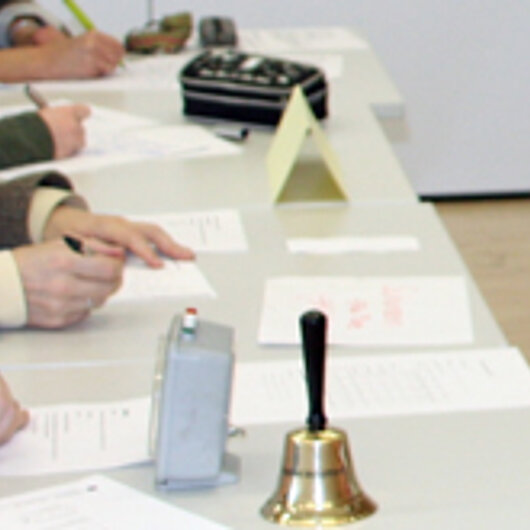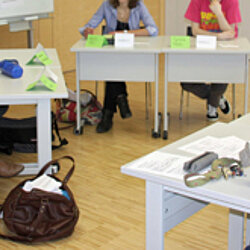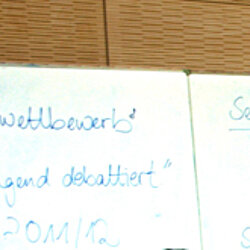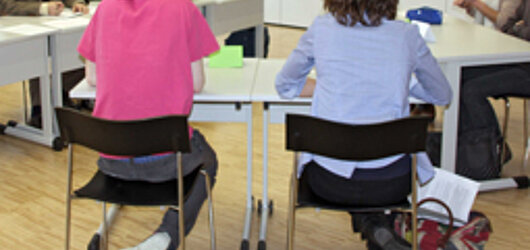The federal competition “Jugend debattiert” (Youth Debates Competition) aims to encourage young people to actively participate in discussions and contribute in shaping democratic processes. The competition provides linguistic and political education. By training of both teachers and pupils, it promotes opinion and personal development. In addition, a country-wide debating competition is held for pupils of two age groups: classes 7-9 (ESM years 2-4) and classes 10-13 (ESM years 5-7). This competition is based on country-wide and regional school networks. Approximately 700 participating schools are joined together into provinces and regions.
A debate consists of a 24 minutes long discussion about current political issues or social controversies as for instance “Should public places be under video surveillance?” or “Should alcohol consumption be banned outside restaurants on certain streets and squares?”
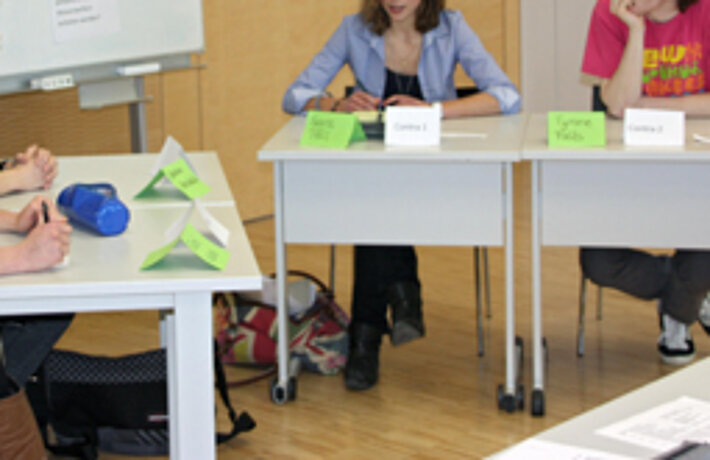
Each of the four panelists has two minutes of uninterrupted speaking time at the beginning, followed by a 12 minutes free discussion time. Each panelist receives a one minute time slot for his/her closing remarks. The four panelists are divided into two factions; one side that is in favor of the measure and one that opposes it. The goal is not to engage in a rhetorical battle, but to examine the topic from different points of views. The evaluation criteria are: expertise, verbal communication abilities, discussion skills, persuasive power. The prizes for the pupils include several day long seminars with professional coaches. The country wide finals always take place in June in Berlin in the presence of the Federal President of Germany, who is the patron of this competition.

